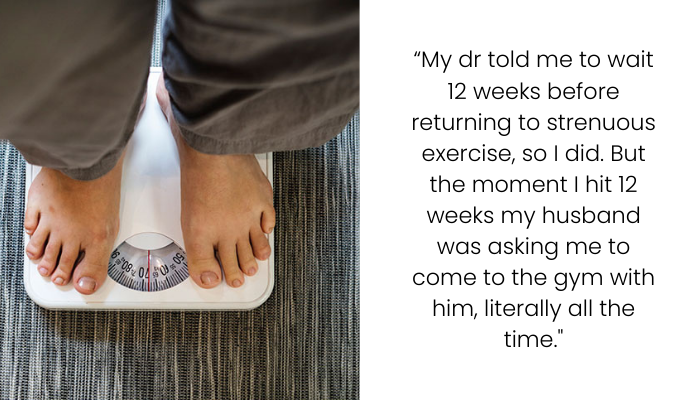Postpartum Pressure and Gym Expectations: When Support Turns into Body Criticism
Navigating postpartum recovery is a deeply personal and physical journey, made more complex when external expectations—especially from a spouse—clash with a mother’s reality. In this scenario, a new mother faces unsolicited fitness advice and mounting pressure from her fitness-enthusiast husband, who seems to conflate love with physical transformation. Despite following her doctor’s guidelines and breastfeeding her 16-week-old baby, she’s criticized for not “trying hard enough” to lose weight. The tension reaches a breaking point when she asserts a fundamental truth: the gym isn’t a magic wand for postpartum bodies. This situation opens a broader dialogue about postpartum health, body autonomy, and partner support.
A husband thought his wife wasn’t losing weight as fast as he would like four months after giving birth
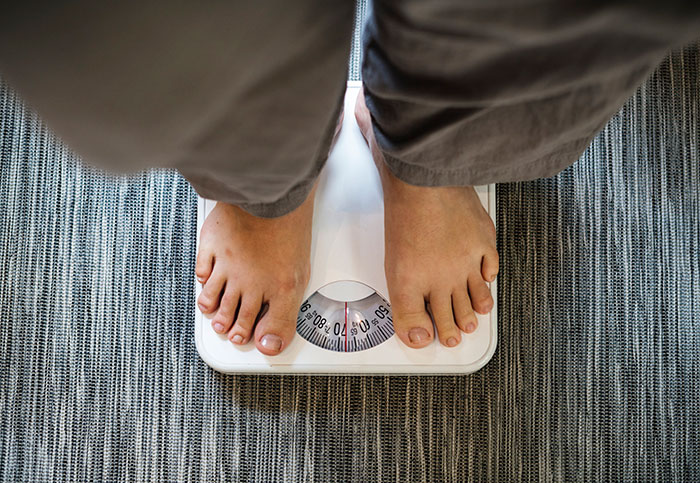
His wife had to school him about the fact that she can’t just magically lose the baby weight
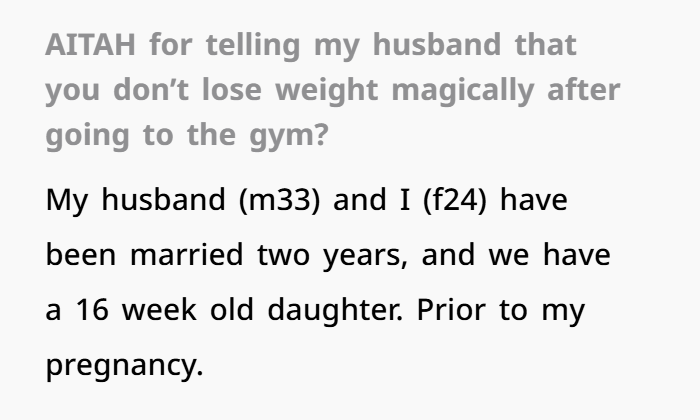
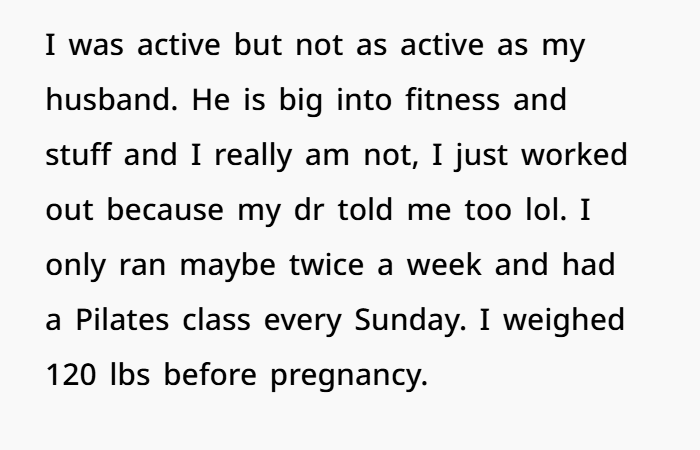

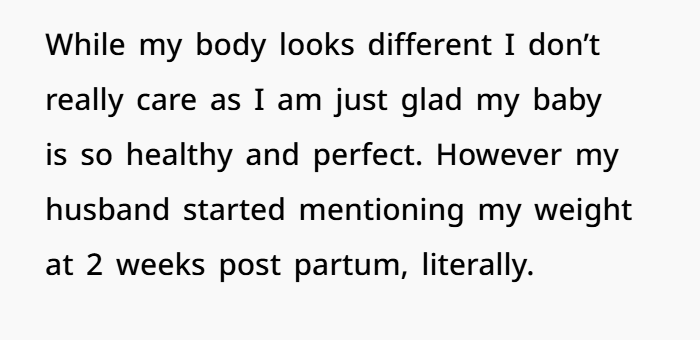
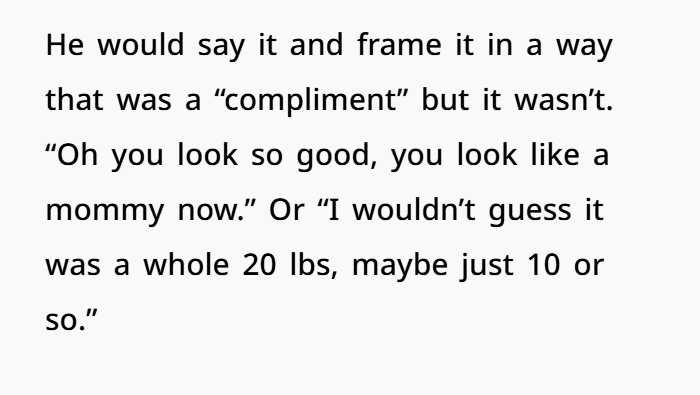

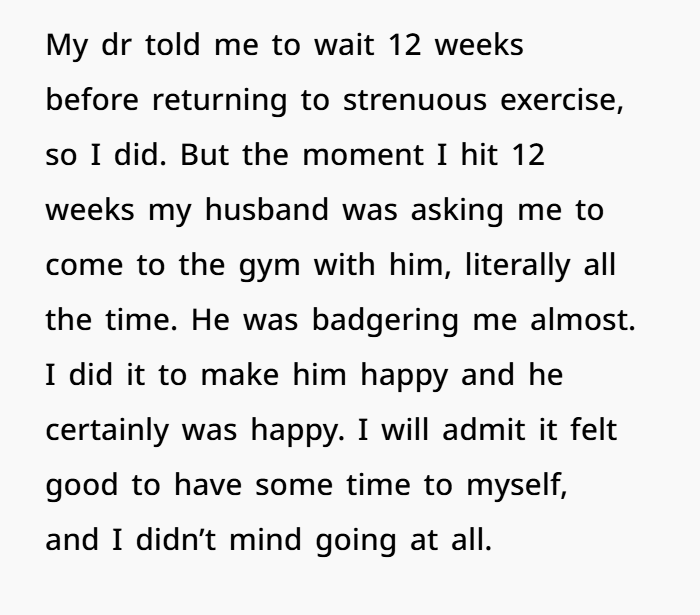

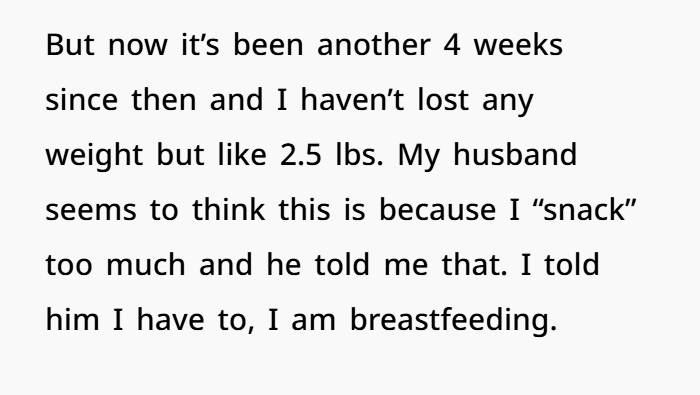

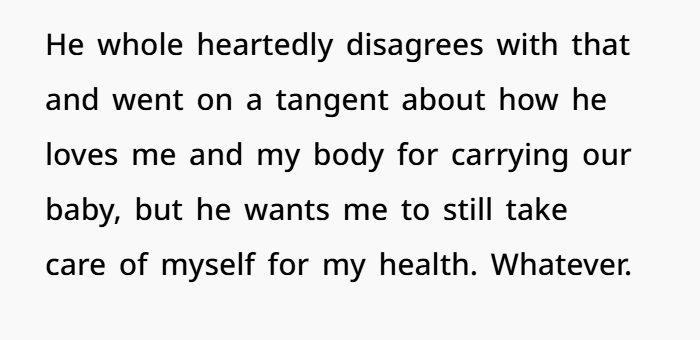


Postpartum Recovery and Weight Loss: What the Science Actually Says
The idea that postpartum weight loss should be quick and linear is a myth—one perpetuated by social media, fitness culture, and outdated societal norms. According to the American College of Obstetricians and Gynecologists (ACOG), most women will not return to their pre-pregnancy weight immediately and shouldn’t be expected to. Postpartum recovery can take six months to a year or more, depending on individual health factors, hormonal balance, sleep, stress, and whether the mother is breastfeeding (ACOG Source).
Weight retention after pregnancy is common and often necessary, particularly for lactating mothers. Breastfeeding increases caloric needs by approximately 450 to 500 calories per day. This means that “snacking” is not only normal but essential to sustain milk supply and support maternal health. As the La Leche League and other maternal health organizations note, calorie restriction or excessive exercise during breastfeeding can harm both mother and baby (LLLI Source).
Why Gym Time Doesn’t Equal Instant Results
Despite popular belief, weight loss isn’t solely about exercise—especially in the postpartum period. A study published in Obesity Reviews found that while physical activity is critical for long-term health and body composition, its immediate impact on postpartum weight loss is moderate at best. Hormonal fluctuations, changes in metabolism, water retention, and sleep deprivation all significantly impact fat loss outcomes (NIH Source).
Moreover, cortisol, the stress hormone, which is naturally elevated during the postpartum period due to lack of sleep and emotional demands, can make it even harder to shed fat. This makes aggressive or guilt-driven exercise plans counterproductive and potentially damaging.

Psychological Impact of Body Commentary Postpartum
Repeated remarks—regardless of their “complimentary” tone—about a postpartum body can be deeply invalidating. A 2019 study from Body Image Journal found that comments on postpartum bodies, even when framed positively, often increase body dissatisfaction and contribute to postnatal depression or anxiety. The postpartum period is marked by dramatic physiological and emotional shifts. This is a time when partners should focus on support, not appearance-based expectations (Body Image Journal).
The husband’s insistence on weight loss disguised as “health concerns” reflects a deeper issue of performance-based affection—where support and love appear conditional on physical attributes rather than holistic well-being.
Healthy Support vs. Passive Pressure
There is a stark difference between encouraging a partner to engage in healthy behaviors and pressuring them with unrealistic expectations. If the concern is truly about health, the conversation should revolve around sleep, nutrition, mental health, and gradual, sustainable habits—not “tightening” abs or measuring weight loss weekly.
Couples’ therapists often emphasize the importance of empathic validation—acknowledging a partner’s lived experience—especially during vulnerable periods like postpartum. Instead of asking, “Why aren’t you trying harder?” a supportive partner might ask, “How can I support your recovery in a way that feels good for you?”
Boundaries and Communication After Childbirth
Postpartum is a crucial time for setting boundaries in a relationship, especially regarding body autonomy. A partner’s role should be one of allyship, not oversight. Dismissing a mother’s exhaustion, physical healing, and nutritional needs by focusing solely on body image is not just insensitive—it borders on emotional manipulation.

This doesn’t mean the husband is irredeemably wrong for wanting his partner to be healthy. However, his current approach lacks compassion and fails to align with evidence-based postpartum care guidelines. Real support includes listening, understanding, and prioritizing mental and emotional recovery along with physical well-being.
People in the comments called the husband a walking red flag: “He is not concerned about your health, only about whether you’re attractive to him”
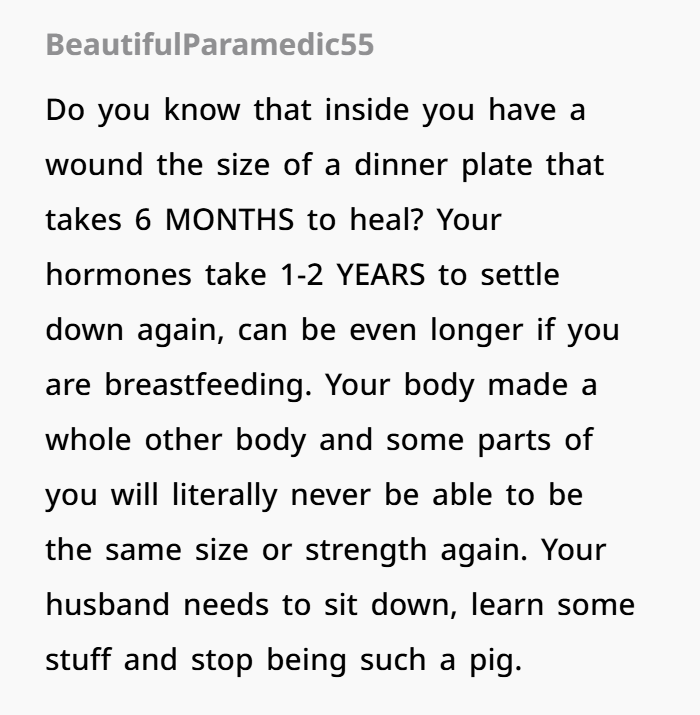
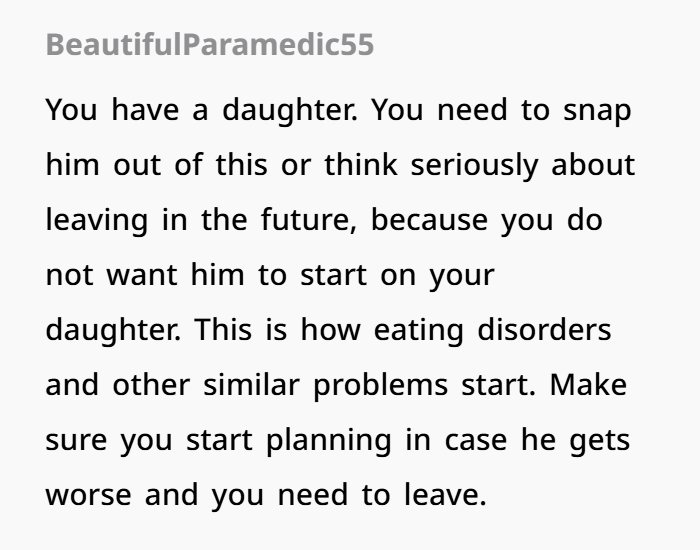
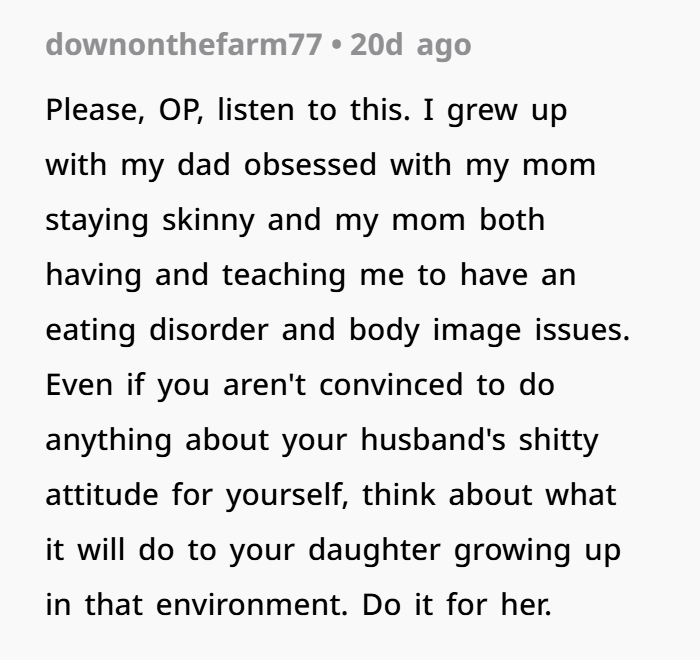
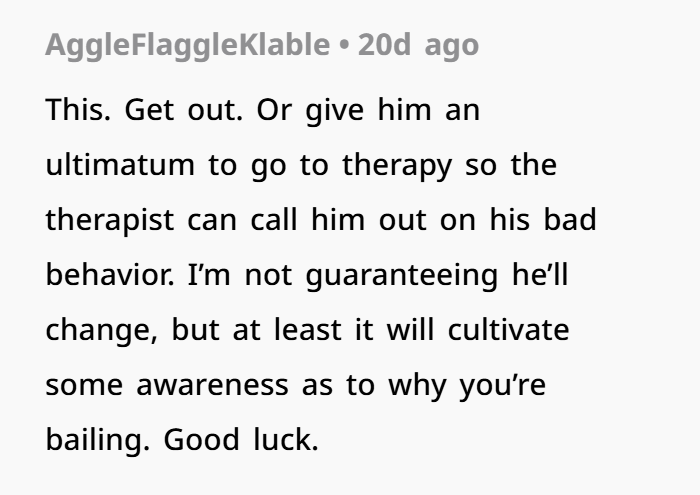


The assertion that “you don’t magically lose weight after going to the gym” isn’t just accurate—it’s a vital reminder that postpartum recovery is a marathon, not a sprint. Pressuring a new mother with fitness demands and conditional compliments only deepens emotional wounds and ignores medical guidance. In this case, the wife’s reaction is rooted in truth, boundaries, and maternal instinct. If anyone needs to “try harder,” it’s her husband—at being a more understanding, supportive partner during one of the most transformative times of their lives.

